There are an infinite number of ways to write anything. Every writer has a process that’s unique to them: who they are, what makes them comfortable, the ways in which they like to challenge themselves. I do feel, however, that there are a number of myths about being a writer which young writers adapt before they really know their own tastes or that the industry (fiction, poetry, journalism, playwriting, screenwriting) exists on a system of values which reinforces these myths as facts.
I came to writing through the back door. When I was a kid, on more than one occasion, my mother asked me if I was smart enough to be able to comprehend the books I was reading. I didn’t come from a literary family. Mostly, they watched TV, usually talk shows or sports or Hollywood movies. I was sent to Catholic grade school and high school not because it was the best education, but because it was family tradition. While in class at these places, my classmates spent most periods playing the game of how quickly and how long we could distract the teacher so that they don’t actually get to their lesson plans.
I started dictating stories through a program on my computer when I was 8 before anybody figured out that I needed glasses. I didn’t think of myself as a literary person. I didn’t even think of myself as smart. I just liked coming up with stories and figuring out how to tell them. I didn’t share anything with anybody for a long time.
When I was 12, I read “The Phantom of the Opera” and had a dream about it. I then turned that into my very first short play. Following that, I started writing a full blown musical. I’m not sure where I got the confidence to do this. All I know is I had the idea, and I just started. I would work on it every day as soon as I came home from school. Eventually, I started writing the piano music too. I found a book on orchestration and set about figuring out how to do that. Though I was writing and making all the time, my memories from that time mainly consist of me lying on my stomach on the floor near my piano with a straight edge ruler, my fingers covered in pencil led, and my eraser never out of reach. I alternated easily between writing music and writing prose, and it was always a very tactile experience. I was not someone who sat there quietly. Because what I was doing felt more full bodied, I couldn’t just describe it as writing, I was working on something bigger and essentially only fully realized in my head. I was a director before I knew what a director was. That said, I was also a writer though I was not ready to admit it. My working in this manner did not make me any less smart nor serious, though at the time I definitely thought it did.
For most of high school, I was incredibly intimidated by anyone in a cute sweater and glasses that identified as a writer. With my badly waxed brows, my big hoop earrings, and my fishnets and garter belt under my uniform skirt, I felt like there was no way I had anything in common with these people. I might get mistaken for the lead singer in a band or a keyboard player, but writers didn’t look like me. So again, I kept my mouth shut. I let people brag about the composer side of me. I let people categorize me in the way that made the most sense to them. Meanwhile, secretly, I wrote three more musicals and spent more and more time focusing on the lyrics and script than the score. When I was 15, I got to go to Interlochen Arts Camp, where I met many young playwrights and directors who were eager to make me their go to composer for future projects. Those people were way better at playing the role of their chosen profession than me. I remember one of them always wore a leather jacket and identified strongly with Orson Welles. Another went to an elite East Coast boarding school and was preparing mentally to choose between Yale or Princeton for Undergrad. Anyway, all of this to say that because of these myths, I created barriers in my mind that kept me from pursuing wholeheartedly the thing I loved the most.
Everything changed when I switched from the Music Conservatory in college to the Drama School. When I went over to Purnell at Carnegie Mellon, everybody was rolling around on the floor, hugging each other, and singing at the top of their lungs for no reason. At first, I was really frightened, these people all seemed like aliens. I had never been in an environment before that required me to know what a sports bra was. When I started there at age 19, I still didn’t quite know how to have a conversation with someone in person. I’m a Millennial and an only child, so I only really knew how to talk to people over text and AOL instant messenger. Luckily, our first assignment in Directing 1 was to give a 45 minute lecture on a 20th century Art Movement, which A.) Excited me because I love going down the rabbit hole about niche things and absorbing as much as I can. B.) Terrified me because I had to speak in front of people for a long period of time.
Anyway, I did it, and it was the beginning of me embracing one key part of my process, allowing myself to be messy, nervous, and off the cuff in front of other people. Following this lecture, my classmates and I spent the entire semester creating a performance piece without words that captured that art movement onstage somehow. We were not provided with any rule books or suggested ways of working. It was on us as directors to figure it out. My entire first year in Directing 1 was like that, and by the end of it, I felt like a completely different person. For the first time in my life, I was actually expected to do what I love all the time, and I thrived in a laboratory setting where I could discover as I go. I didn’t have anybody breathing down my neck, implying that I was doing it wrong. This was also the first time I had ever been asked to collaborate with people in the room to come up with something without a pre-existing set script.
A lot of the other directors in the program were also writers, so we cultivated a real community where directors were viewed as multidisciplinary artists in one way or another (Some folx were painters/directors). I began to feel comfortable identifying myself as a writer/director, and the lines between the two art forms being constantly blurred and challenged. That said, the Drama School, or should I say our annual student work festival, Playground, definitely had their favorites, and I was not one of them. I ended up being grateful for this because I never got a big ego and just kept exploring and challenging myself and getting better. When I was a junior, I had spent the past 3 years writing and workshopping plays with my actor colleagues after hours and rumors started circulating around the school that I was this dope playwright. I didn’t have any of my plays done at Carnegie, but I got a few productions and readings in NYC, so some of my classmates started showing up to those. A few people really resonated with what my plays were trying to say, and for the first time, I got a sense of what it was like to build a relationship with my audience. In high school and college,
I never submitted my work to anything because my fragile little writer ego was bruised enough already, so none of my plays were decorated with awards or honorable mentions. I learned how plays interact with the world through watching people either get bored or sit forward spellbound. I’m not gonna pretend like everybody loved and got everything I was doing all the time because that wasn’t true. My writer story is not one of overnight success. It started small in black boxes on the Lower East Side, lofts in Downtown LA, and eventually, storefronts that doubled as apartments in Chicago. It started 20 people by 20 people engaging, some returning for my next show, some not, and my taking out the garbage at the end of the night every time. Granted, I still did this for about four years before I actually mustered up the courage to call myself a playwright. In my mind, before 2015, I still hadn’t gone to an Ivy or had a liberal arts education, I still looked like I had forgotten to shower, I still felt crippling anxiety at the thought of writing an essay, again, because of all of these myths, in my brain, this meant I wasn’t a writer. I reasoned that I was a director who wrote some things in notepad (yes, the scrappy computer program) that we would then stage and figure out during rehearsals.
In the Winter of 2016, I found myself house sitting in Connecticut with my new partner. He had to work most of the time at a children’s theatre company, so, for the first time in a long time, I suddenly wasn’t paying rent and had tons of freetime. The first thing I wrote was the first draft of what would become, “The Snowpeople”, a feature screenplay. I had never written a screenplay before, but I knew this idea was a movie, so like 13 year old Olivia, I charged forward unphased. In March of 2016, I got the opportunity to pitch projects to my theatre company, The Runaways, for their upcoming season, so I came up with an idea for a play that I was just going to write by myself. I also started to submit my work to opportunities for the first time and write cover letters about how I was a writer and had goals for my career blah blah blah.
Out of nowhere, at age 27, I decided to tell my fears to fuck off and put myself out there. I was rejected by all of what I had applied for, but it didn’t kill me like I thought it would. Suddenly, all of the things that made someone a writer didn’t really matter to me anymore. “Mary Shelley Sees The Future” premiered in Chicago weeks before Trump was elected president. It wasn’t a perfect play, but it was mine, and there were people who absolutely loved it. Following that process, I rewrote all but 2 scenes. I applied to Yale with it, didn’t get in, but that sort of stamp of approval didn’t seem to matter anymore. Over the next 3 years, I had more plays, some I wrote by myself, some I wrote out of devising processes, and in interviews, I finally started self identifying as a playwright, and to my surprise, people actually believed me.
Now it’s 2021, I’m in Graduate School getting my MFA in Screenwriting. I also teach playwriting and playwriting for devising processes regularly year round, but there are still so many times where the industry itself tries to make me believe those old myths I have long cast aside: that I’m not really a successful writer yet because I haven’t won A, B, or C or done X. My pedigree isn’t Y, so I’ll never “make it”. If we dispelled with these myths and broke our industry down, so that writers are not always being put in the position of waiting to be chosen, then a wider range of people would feel like they could “be writers”. Just because they’ve never seen anybody look like them do this doesn’t mean that it’s not for them, but that’s easier stated than believed and lived out every day. The kind of mind games I played with myself that kept me from being my full self are not unique. I was lucky in that I faced my fear and built a community around me that made me feel like I could. When you write a play and it’s performed and people see it and engage with it and you actively work to learn from that experience and get better in your next play, you are a working playwright. You don’t need to hold out for that ‘world premiere’ at such and such in order to have ‘legitimacy’. If you’re not doing it because you get something out of the experience of audiences engaging in real time in front of you with your work and grappling with the good, bad, and ugly of what that means, then you’re not doing it for the right reasons.
In terms of how we can completely burn down the elitism of literary culture in the world, I am not quite sure where to start. I do know, however, that if we can at least change the way we think about it as writers, we can probably help other writers do that too. If enough people stop believing these myths to be cold, hard facts, then I think we’ll look around at each other, have many, many conversations, and figure it out as a massive world wide collective. But until then, here’s to breathing through the daily struggle, here’s to that twinge of self doubt that comes over you everytime you open a rejection email, here’s to whatever you do to get yourself out of that spiral and back to work, here’s to not spending time envious of those who do get chosen, here’s to choosing not to wait around even in the littlest of ways, here’s to putting yourself out there in front of others and slowly learning to trust that they’ll catch you when you fall. Here’s to vulnerability when it would be way easier to just pretend like you’re everybody’s image of you.


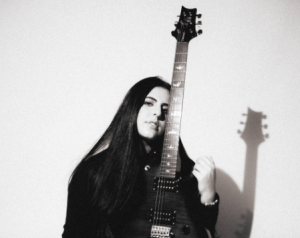


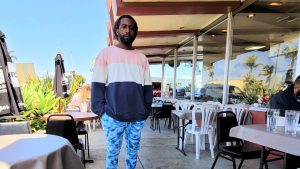
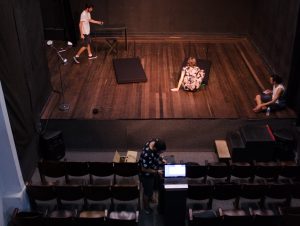
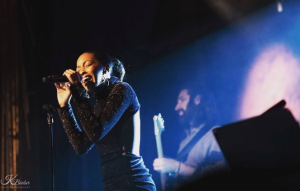
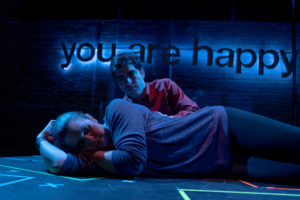
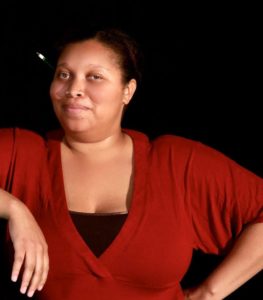
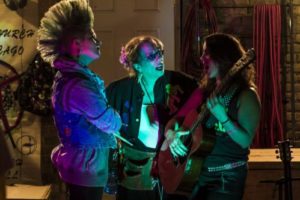
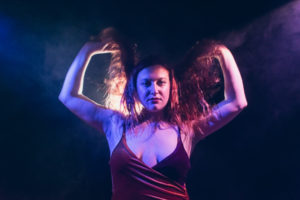
Be First to Comment